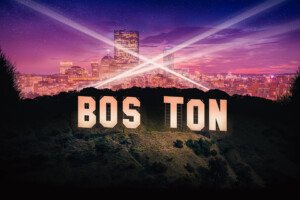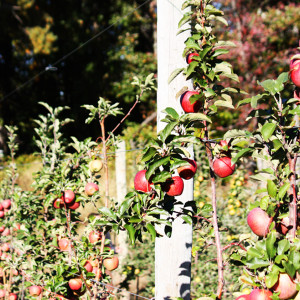“It Ends with Us” Movie: The Story Behind Lily Bloom’s ‘Best of Boston’ Award
Here is the 2023 Boston magazine cover that only exists in Colleen Hoover's cinematic universe.
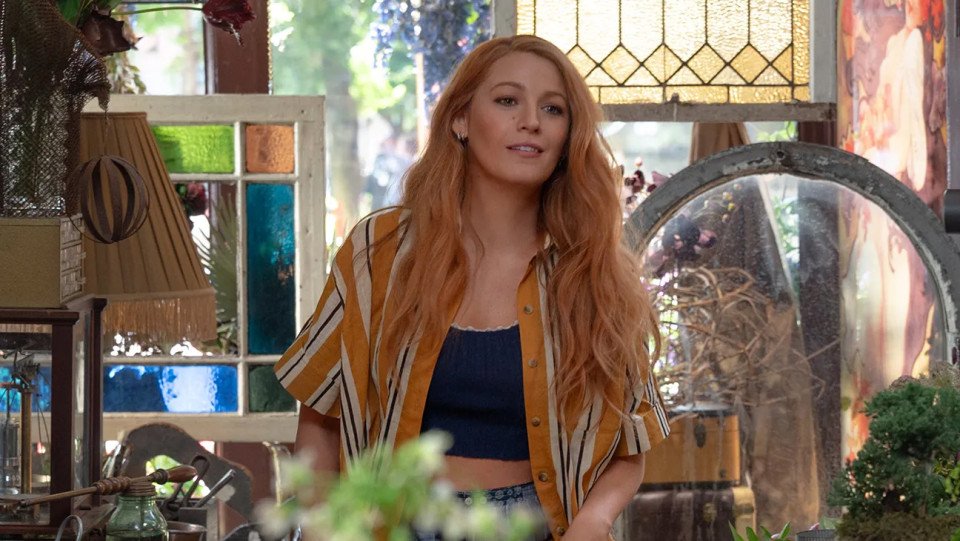
Courtesy

Lily Bloom (Blake Lively) and Ryle (Justin Baldoni). / Courtesy
This is a story about grave subjects like generational trauma and intimate partner violence, but working within those universal themes, the backdrop is Boston. Lively’s protagonist is Lily Blossom Bloom, a buoyant free spirit and human floral pattern who moves from the made-up town of Plethora, Maine to Boston, in the hopes of fulfilling a lifelong dream of opening a flower shop.
The Boston that Lily inhabits is a fictionalized one with enough spiritual similarities to the real thing, but that doesn’t attempt, in any real way, to replicate it. (Not a criticism.) For instance, in Lily Bloom’s Boston, the hottest new restaurant is the farm-to-table spot called Root, Boston Grace Hospital is an imaginary stand-in for Mass General, and wealthy adult-male hockey fans regularly wear onesies to Bruins bars to score free drinks. (The fiction here isn’t drunk adults in onesies; it’s the happy hour drinks, which state law prohibits.) And while It Ends With Us showcases majestic aerial shots of the Zakim Bridge, the Charles River, the Longfellow Bridge to establish a sort of buzzing urbanity, the movie, in fact, was mostly shot in Jersey.
But in this romantic melodrama, atmospheric verisimilitude is sufficient—the point is what Boston represents. To Lily, Boston isn’t just a place to distance herself from her upbringing’s generational trauma, it’s also an alluring beacon for a better life. “Everything is better in Boston,” her wounded high-school love, a boy named Atlas, tells her in a flashback scene, plotting his eventual Maine escape. Naturally, Lily heads where everything is better (in Boston) and turns a dilapidated Back Bay storefront into the eponymous Lily Bloom’s, an earthy-baroque flower-installation shop. So 90 minutes into the movie, when Lily’s best friend and employee Allysa (Massachusetts’s very own Jenny Slate) bursts into the store with a copy of this magazine’s Best of Boston issue, shouting “We did it!,” this is meant to signify a big moment.
That big moment: Lily Bloom’s is voted No. 7 in a readers’ poll of the city’s “10 Best New Businesses”!

Courtesy Sony Pictures Entertainment

In Hoover’s original novel, this accolade is explained as a people’s choice award bestowed by an unnamed local newspaper. This movie helpfully re-attaches the 50-year-old Best of Boston franchise to this magazine. (Many Best of Boston installments have included readers’ poll results, but the “10 Best New Businesses in Boston” franchise is also a work of fiction.) So when a film-clearance company working on the project reached out to us here at the magazine in 2023, Boston design director Benjamen Purvis mocked up a special Best of Boston cover for the film. There’s a glimpse of it on screen, but for posterity sake, here’s the Boston magazine cover that only exists in the It Ends with Us cinematic universe:
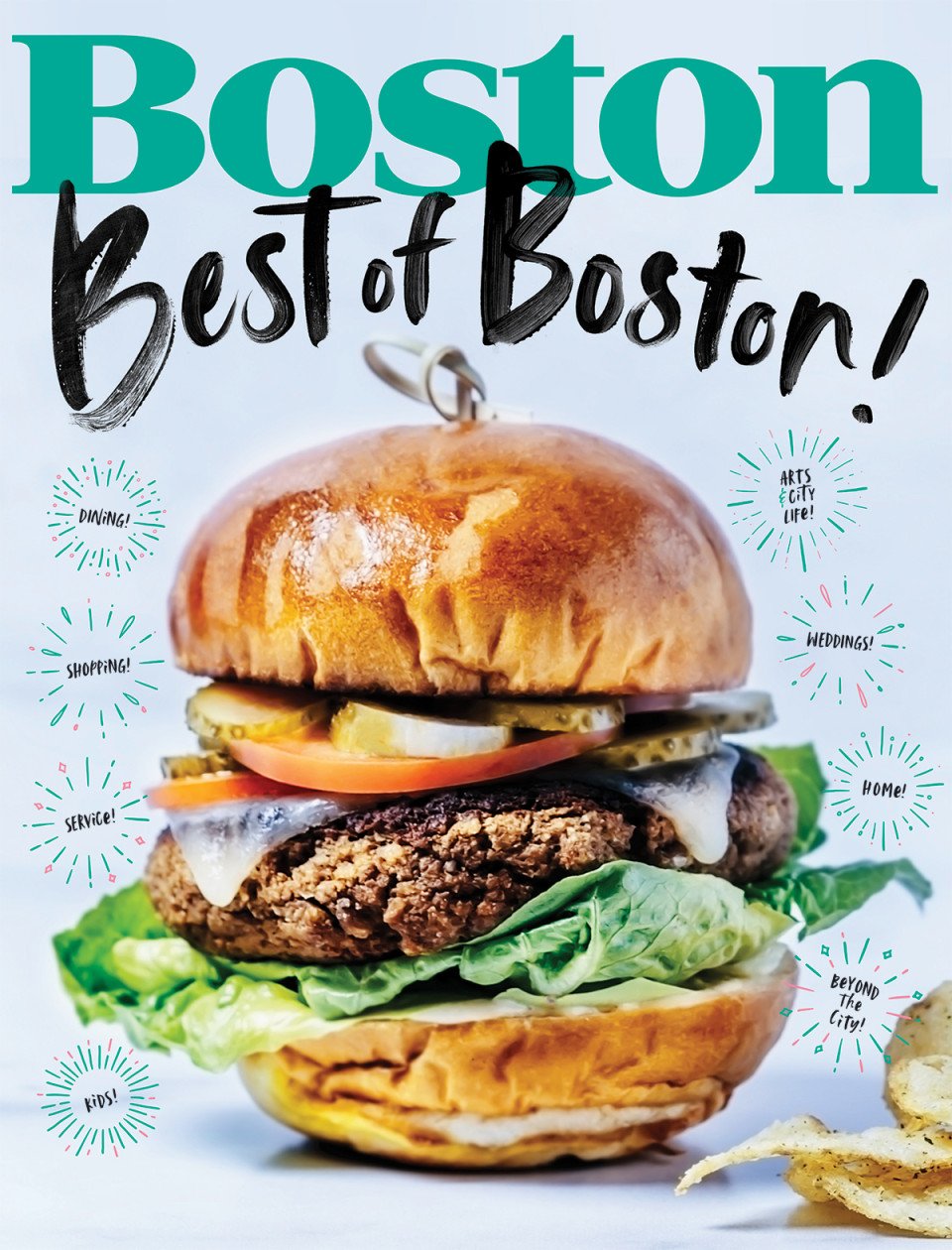
Cover design by Benjamen Purvis / Photo by Getty Images
They call this sort of thing a “hero prop”: an object designed for a main character to use that’s so painstakingly customized to the storyline’s details, it can be scrutinized on camera. These items are small things you might only see for a second, but their attention to world-building specifics is an art form unto itself. And we’ve gotta hand it to the It Ends with Us prop conjurers, who created the interior Boston pages you see legibly on screen. When Lily thumbs through the fictional version of Boston magazine to an open spread, the attention to detail is pretty damn good.
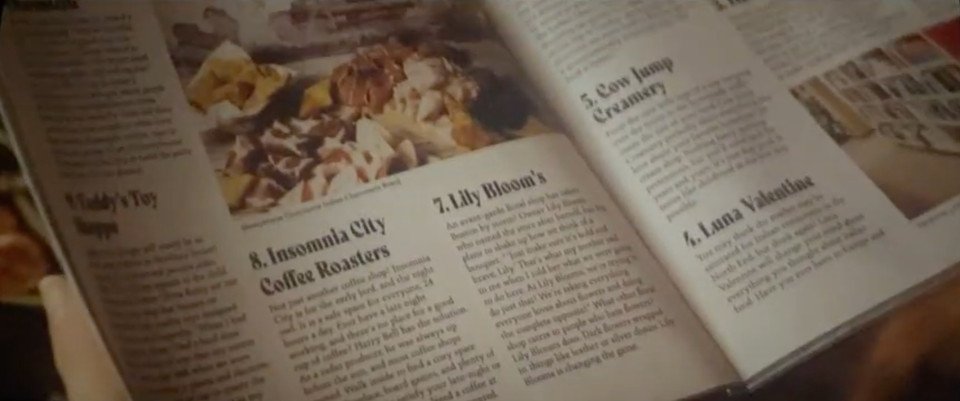
For example, the accompanying blurb is an amusing imitation:
Lily Bloom’s
An avant-garde floral shop has taken Boston by storm! Owner Lily Bloom, who named the store after herself, has plans to shake up how we think of a bouquet. “ ‘Just make sure it’s bold and brave, Lily.’ That’s what my mother said when I told her what we were going to do here. At Lily Blooms [sic], we’re trying to do just that! We’re taking everything everyone loves about flowers and doing the complete opposite!” What other floral shop caters to people who hate flowers? Lily Bloom does. Dark flowers wrapped in things like leather or silver chains. Lily Bloom is changing the game.
Even better are the other businesses on this fictional list, an ingenious sendup of present-day urban-upscale entrepreneurialism. There’s A Bone for Bella, “a luxury shop and bakery for dogs in Somerville.” And Cow Jump Creamery, a “hometown ice cream shop … with waffle cones the size of your head.” Harbor Tea House, an afternoon tea spot inspired by the owner’s “recent trip to London”—how does this not already exist in Boston? And our favorite: Hardcover Lovers, a Beacon Hill bookstore that’s elevated the tradition of shelf-talker staff recommendations to a white-glove “concierge readers service.” LOL.

An earlier mock-up of the fictional 2023 Best of Boston interior spread in It End With Us. / Courtesy
Good job, prop masters: It’s almost realer than real Boston.
